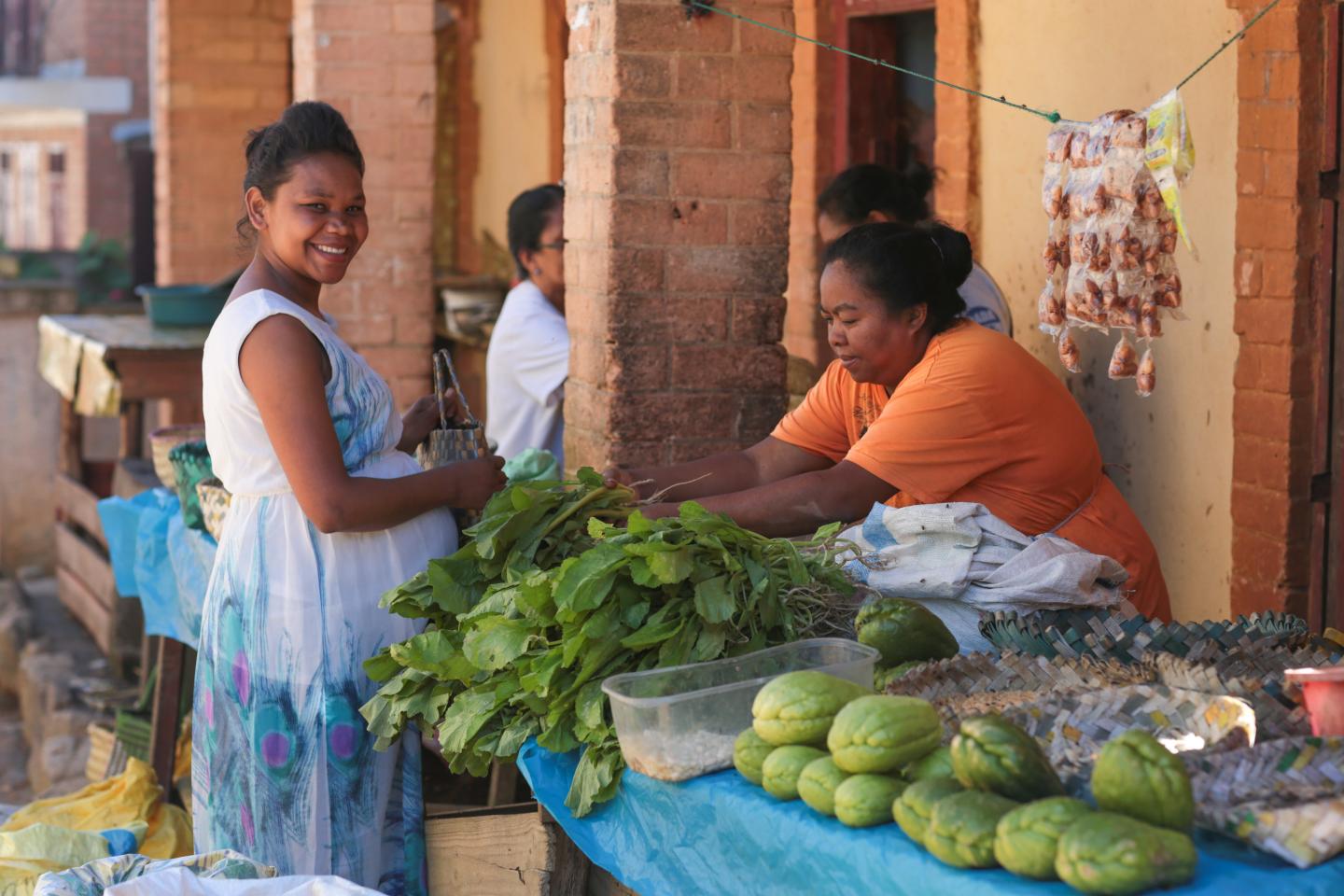Parents Want to Know 101
Welcome to Parents Want to Know 101. Parents Want to Know 101 was created for parents and those interested in parenting issues and trends, from birth to college, and beyond. It provides exposure to important and current information, relevant to raising a healthy, happy, independent, successful child. What should we, as adults, contribute to our families, the community, and our country to make this happen? The children are our future. Parents need one another; it does take a village.
Thursday, June 29, 2023
Importance of Prenatal Care
By Sharon Rose
Prenatal care is extremly important when a woman becomes pregnant because it will help keep her and the baby healthy and safe Pregnant women need a village that starts with the team of prenatal, health care providers. With prenatal care, women can reduce the risks of complications for themselves and their baby. Let’s look at some key birth statistics that will help us understand this important fact.
Key Birth Statistics:
There were 3,661,220 births recorded in 2022 in the U.S. The general fertility rate in 2021 was 56.1 births per 1,000 women ages 15–44, down less than 1% from 2021. In contrast, the number of births and general fertility rate both increased 1% from 2020 to 2021.
Other findings in the new report from the Center of Disease Control (CDC):
* 2022 birth rates
* declined for women ages 20–24 and 30–34,
* increased for women ages 25–29 and 35–49
years, and
* were unchanged for females aged 10–14.
* The birth rate for women ages 20–24 (60.4) also reached a record low.
* The increased birth rate for women ages 40–44 in 2022 continues the upward trend for this age group, seen nearly every year since 1985.
* The cesarean delivery rate increased for the third year in a row to 32.2% in 2022.
* The low-risk cesarean delivery rate was unchanged at 26.3%.
* The preterm birth rate declined 1% in 2022 to 10.38% after a 4% increase in 2021.
Considering the statistics, prenatal care is essential for the well being of mother and baby. It is the best protection mothers can give themselves for a safe, healthy, and happy pregnancy and delivery. It is always hoped that there will be no complications, however, pregnant women need the necessary care, throughout her pregnancy, to insure that any risks are kept to a minimum.
Including the essential medical care, pregnancy wellness is also based on several other criteria: nutrition, exercise, and lifestyle. All of these criteria work together as partners to ensure a healthy pregnancy, safe delivery, and a healthy baby.
What health care professional is trained and qualified to care for a pregnant woman? A doctor trained as an OB/GYN (Obstetrician/Gynecologist) and is board certified, is the best qualified health professional to determine how wellness is progressing with a pregnant woman and her unborn child. The OB/GYN is a doctor who specializes in healthcare for women in general, prenatal care, and delivery of the baby of a pregnant woman. The OB/GYN should be established at a hospital and have access to medical technology that enables him or her to identify complications, provide any needed care, and in some cases reverse adverse conditions that may lead to birth defects. It is important for the pregnant woman to follow the office visits schedule the doctor has planned. Scheduled prenatal care office visits should start as soon as the woman knows she is pregnant. The schedule I followed with my three pregnancies is still used today and is as follows:
1. The first 6 months of pregnancy, office visits are once a month.
2. During the 7th and 8th month of pregnancy, office visits are every 2 weeks.
3. During the 9th and final month of pregnancy, office visits.
This schedule may vary if complications arise and closer observation is identified, as needed.
One such complication type that pregnant women should be aware of is preeclampsia.
What are the signs and symptoms of preeclampsia?
1. High blood pressure with or without protein in the urine.
2. Changes in vision, like blurriness, flashing lights, seeing spots or being sensitive to light.
3. Headache that doesn't go away.
4. Nausea (feeling sick to your stomach), vomiting or dizziness.
5. Pain in the upper right belly area or in the shoulder.
6. Sudden weight gain (2 to 5 pounds in a week)
7. Swelling in the legs, hands or face.
8. Trouble breathing.
Nutrition is vital for the wellness of mother and her unborn baby. The role of providing the pregnant woman with needed information on proper diet often falls to the OB/GYN. However, in some cases, if there are health problems involved in the pregnancy a professional dietician may be assigned to the pregnant woman. One of the first nutritional needs the pregnant woman is directed to add to her diet by the OB/GYN is the prenatal vitamin. Today, this is, mostly, made available over-the-counter instead of as a prescription. Prenatal vitamins do not, however, take the place of fresh healthy foods needed throughout the pregnancy, such as: green leafy vegetables, grains, fresh fruit, milk, and protein (meats, eggs). Your doctor should be able to provide you with information on the three balanced meals needed daily. In addition to your doctor’s information, you can also use the internet to research healthy diets for pregnant women. An OB/GYN or dietician can also give you information on weight gain, foods to avoid, and harmful Listeria. Listeria is a food-borne bacteria that is found in soil and water that pregnant woman should be aware of. Animals can be carriers, and fruits and vegetables can become contaminated by Listeria.
Exercise is helpful for the overall health of the pregnant woman. It helps in keeping a healthy heart, in defense of stress, and in keeping weight gain under control. Daily walking is one of the best exercises a pregnant woman can engage in. In recent years, Kegel exercises, also called pelvic floor exercises, have become popular among pregnant women. Kegel exercises strengthen the muscles that support the uterus, bladder, bowels, and vaginal wall. These exercises have been said to help ease a woman’s delivery. I do caution any woman who is pregnant to discuss your exercise program with your doctor before starting it.
Finally, a most important concern is Lifestyle. The pregnant woman’s lifestyle can affect her wellness, as well as, that of her unborn child. Research has shown that any use of alcohol, cigarettes, or the abuse of any drugs, whether it be, so called, 'street drugs,' or prescription drugs can cause birth defects and complications that can put the life of the pregnant woman and unborn child in jeopardy. There is no safe amount of these substances that a pregnant woman can take. When you are pregnant it is a good idea to become a label-reader to ensure you do not consume alcohol unknowingly, as some foods, that you are not aware of, may contain alcohol. A pregnant woman must always remember, whatever she takes in, her baby takes in. Although, there may be periods of not feeling well, a pregnant woman should continue to work, follow her usual routine, keep in contact with family and friends, and have a healthy socialization regimen.
It is important to recognize that pregnancy includes the father. The lifestyle of expectant 'parents' should include Lamaze, birthing classes in their plans to prepare for the birth of their baby. Lamaze classes teach controlled breathing exercises for the labor process and how parents can work together to bring their baby into the world. Your confidence will be lifted and many fears of just what will happen will be very much alleviated. Classes are scheduled for the third trimester, about the seventh month of pregnancy and last about 6 weeks. The good thing is, the cost of Lamaze classes are covered by most health insurances.
Parents should continue a vibrant social and career lifestyle. Keep in touch with family and friends, keep working outside the home, as long as you feel well enough and the environment is safe for you and the baby.
All of these criteria are standard for the wellness of a pregnant woman and her unborn child. Caring for and loving a baby starts with prenatal care. Smile! You have a baby on the way!
Research Sources:
https://www.cdc.gov/ncbddd/birthdefects/data.html
https://www.who.int/southeastasia/news/detail/02-03-2023-world-birth-defects-day-many-birth-defects-one-voice#:~:text=Between%202010%20and%202019%2C%20birth,%25%20of%20under%2Dfive%20mortality.
Copyright, Importance of Prenatal Care, Sharon Rose, Parents Want to Know 101, June 29, 2023. All rights reserved.
Wednesday, December 29, 2021
Celebrate Kwanzaa
By Sharon Rose
Celebrate Kwanzaa, December 26, 2020 - January 1, 2021!! Kwanzaa, is a cultural celebration whose purpose is to celebrate and honor the history, culture and traditions of African-American and African people. It is celebrated in the United States and around the world. Each day is done with ceremony and purpose for living. Celebrating Kwanzaa is a CHOICE that many parents want to know more about. Here is more about Kwanzaa, its meaning, and how you can go about celebrating it.
Kwanzaa and What to Celebrate Each Day:
December 26: "Umoja" — Unity
December 27: "Kujichagulia" — Self-determination
December 28: "Ujima" — Collective work and responsibility
December 29: "Ujamaa" — Cooperative economics
December 30: "Nia" — Purpose
December 31: "Kuumba" — Creativity
January 1: "Imani" — Faith.
We encourage all cultures to learn more about Kwanzaa! Learning about other cultures brings value to "living," in our global society. Find out more about Kwanzaa and see how to have a joyous Kwanzaa celebration by going to our "sources."
Sources: http://www.history.com/topics/holidays/kwanzaa-history
http://www.africa.upenn.edu/K-12/Kwanzaa_What_16661.html
Copyright, Celebrate Kwanzaa, Parents Want to Know 101, Sharon Rose, December 29, 2021. All rights reserved.
Sunday, September 12, 2021
Storytelling By Grandparents
By Sharon Rose
Storytelling by grandparents carries valuable life lessons and one's family history. When I was growing up one thing I took great joy in was sitting at my grandfather's feet as he told stories of his boyhood and of him as a young father and husband. With a touch of humor, he told stories of his childhood fears, challenges, triumphs, successes, and the good times. My grandfather's stories and seeing all that he had achieved in raising a family, being a good father, husband, and grandfather, gave me courage and hope for what is possible in life if you are persistent and keep a positive attitude. Grandparents' wisdom and memories should be passed down like an heirloom, and it is often young grandchildren who make the best listeners. Make a connection with grandparents. They are the keeper of dreams!
Copyright, Parents Want to Know 101, "Storytelling By Grandparents," Sharon Rose, September 12, 2021. All rights reserved.
Sunday, June 20, 2021
Important Role of 'Dad' in a Child’s Life
By Sharon Rose
In his lifetime, any man can be capable of fathering a child, but what role in his child's life will cause that man to become a Dad. How special to be called, Dad. Let's look at the important role a Dad has in a child's life.
Children benefit emotionally and psychologically from the presence of an involved father, who fill the role of a Dad. Dads are so special! From birth, children of involved Dads are more likely to be emotionally secure, confident to explore their environment, and create more healthy social relationships with peers, as they grow into adolescence and young adulthood. They are also, less likely to get into trouble at home, school, or in the community. Babies who get a lot of affection and playful interaction from their Dads feel more secure. A Dad's playfulness with his children is more stimulating than the kind of playful activity mothers present. Rough housing with Dad can teach children how to react to aggressive impulses and physical contact without losing control of their emotions. Dads more so, encourage independence and a lack of fear of the world outside the home. Our Dads also encourage achievement and competition, while mothers are more likely to stress nurturing, both of which are important. The balance between the two is needed. A study of school-aged children found that children with involved Dads are less likely to experience depression, drug abuse, or display disruptive or delinquent behavior. Dads hold an important role in benefiting a child’s growth, development, and future that cannot, likely, be filled by anyone else. We are not saying that there are no children who did not have the benefit of having a Dad present in their lives, who do not succeed; there are. However, they can give testament to the rough road they and their mothers traveled to get there.
Another important role of Dad to his children is his behavior that is modeled when the children can observe a positive relationship between Mom and Dad. Children learn so much more from parents as role models than they do from what the parents say. When a son sees Dad showing respect to Mom, he learns from this modeling how to treat the women in his life. A daughter gains self-esteem, as a developing young woman should, and an expectation of how she should be treated by men in her life. This learning experience will carry over into their adolescence and adulthood.
Happy Father's Day to all our Dads!! You play an important role in the lives of our children and in our families, and we celebrate you on this very special day!
Copyright, Important Role of 'Dad' in a Child's Life, Sharon Rose, Parents Want to Know 101, June 20, 2021. All rights reserved.
Sunday, August 2, 2020
Breastfeeding
By Sharon Rose
It is World Breastfeeding Week 2020, August 1 - 7th, and we are talking about understanding breastfeeding, and its benefits. Mothers, I breastfed my 3 children, and to my surprise, I needed guidance in how to breastfeed successfully. I learned that it is most beneficial to your baby and yourself, to be patient, understand the changes to your body, and find support, as your milk comes in. Milk production starts while you are pregnant. Your body will start to produce a nutrient-rich, syrupy, pre-milk, Colostrum, while you are pregnant. You will notice your breast starting to increase in size at the halfway point of your pregnancy, about 16 to 22 weeks. This is due to the increased hormonal levels stimulating the production of colostrum. Your baby will need this yellow to whitish color miracle milk, colostrum, in its first few days of life. Colostrum includes proteins, carbohydrates, fats, vitamins, minerals, and proteins (antibodies) that will fight disease-causing agents such as bacteria and viruses.
During pregnancy, you may or may not have some leaking of colostrum from your breast. If you should, you can use nursing pads to tuck in your bra to protect your clothing, so keep some handy. If you don’t have any leaking, don’t take this as an indication that you won’t be successful with breastfeeding.
Once your baby is born, if you are a first-time mother, your breast milk will take 3 to 4 days, and possibly up to 7 days to come in. As a first-time mother, my milk came in after 4 days. If you have had a child before, it may take less time. Be patient, because the time frame varies from one mother to another. You will notice that your breasts will become more firm once your milk comes in. I learned that breastfeeding is natural, but not easy, as I had expected it to be. Your obstetrician may offer the support services of a Lactation Consultant during your prenatal visits. If not, ask for information on working with a Lactation Consultant before your baby is born. Most hospitals, after you give birth, provide this support service. A Lactation Consultant is helpful in dispelling any myths, preparing you for what to expect, and how to have a happy, healthy breastfeeding experience, for you and your baby.
Copyright, Breastfeeding, Sharon Rose, Parents Want to Know 101, August 2, 2020. All rights reserved.
Monday, March 2, 2020
Great Books for Children Around the World (Ages 0 - 8)
By Sharon Rose
Here are fun books, all with their own purpose, that your child will learn from and enjoy.
1. Good Night Moon, by Margaret Wise
Brown
2. The Very Hungry Caterpillar, by Eric Carle
3. Please, Baby, Please, by Spike Lee &
Tonya Lewis Lee
4. Chicka Chicka Boom Boom, by Bill
Martin, Jr.
5. Five Little Monkeys Jumping on the Bed,
by Ellen Christelow
6. Touch, Think, Learn: ABC; Touch, Think, Learn: Farm;
Touch, Think, Learn: Vehicles; series by Xavier
Deneux
7. Whose Toes Are Those, by Jabari Asim
8. Whose Knees Are These, by Jabari Asim
9. First 100 Words, by Roger Priddy
10. Baby Goes to Market, by Atinuke
11. Of Thee I Sing, by Barack Obama
12. Bahay Kabo, Hermès Alegre
13. Dragons Love Tacos, by Adam Rubin
14. Peekaboo Morning; Peekaboo Bedtime; Uh-Oh;
I Just Want to Say Good Night; Caribbean Dreams;
books by Rachel Isadora
15. Mon Petit Busy Day, by Annette
Tamarkin
16. Daniel Goes to the Potty; Daniel Tiger’s
Neighborhood (Daniel Book Series)
17. The King of Kindergarten, by Derrick Barnes
18. I See the Sun in India (Book Series: I
See the Sun in U.S.A., Mexico, China,
Nepal, etc., (travel books for kids) by Dedie King
19. Grandma and the Great Gourd: A Bengali Folktale,
by Chitra Banerjee Divakaruni
20. Peek-a-Who, by Nina Laden
21. Anna Carries Water, by Oliver Senior
22. Babies Around the World, by Puck
23. Corduroy, by Don Freeman
24. No Mirrors In My Nana’s House, with
song CD, by Ysaye M. Barwell
25. Richard Scarry’s Best Word Book Ever,
by Richard Scarry
26. My Friend Mis Amigos, by Taro Gomi
27. (Edgar and the Sausage Inspector, by
Jan Fearnley
28. The Snowy Day, by Ezra Jack Keats
29. Rufus the Bat Who Loved Colors, by
Toni Ungerer
30. A Chair for My Mother, by Vera B. Williams
31. I Love You Through and Through, by Bernadette
Rossetti-Shustak
32. Amazing Grace, by Mary Hoffman
33. Jabari Jumps, by Gaia Cornwall
34. Escargot, by Dashka Slater
35. Where the Sidewalk Ends, by Shel
Silverstein (Poetry)
36. Say Zoop, by Herve Tullet
37. The Berenstain Bears: and The Trouble with
Grown-Ups, (and series) by Stan & Jan Berenstain
38. Matilda, by Roald Dahl
39. Baby Faces, by DK Publishing
40. Baby's Book of the Body, by DK Publishing
41. Alligators All Around (ABC Book), by Maurice Sendak
42. Put Me in the Zoo, by Robert Lopshire
43. Black Bird Yellow Sun, by Steve Light
44. Imagine! (a wordless book) by Raul Colon
45. What’s Under My Bed? by James
Stevenson
46. The Pout-Pout Fish, by Deborah Diesen
47. Ten Little Fingers and Ten Little Toes, by Mem Fox
48. Thread of Love, by Kabir Sehgal
49. Thai Children's Favorite Stories, by Marian D. Toth
50. Ocean Meets Sky, by the Fan Brothers
51. The Day the Crayons Quit, by Drew
Daywalt and Oliver Jeffers
52. I Am Human; I Am Love; I Am Peace: series by
Susan Verde
53. Sally at the Farm, by Stephen Huneck
54. The Little Engine that Could, by Watty
Piper
55. Little Gorilla, by Ruth Bornstein
56. The Wonderful Things You Will Be, Emily
Winfield Martin
57. Winnie the Pooh, by A. A. Milne
58. Charlie and the Chocolate Factory, by Roald Dahl
59. The Tale of Peter Rabbit, by Beatrix
Potter
60. Brown Bear, Brown Bear, What Do You
See? by Bill Martin, Jr. & Eric Carle
61. Are You My Mother, by P. D. Eastman
62. Alexander and the Terrible, Horrible,
No Good, Very Bad Day, by Judith
Viorst
63. Green Eggs and Ham; The Cat in the Hat; Horton
Hears a Who!; One Fish Two Fish Red Fish Blue Fish;
Hop on Pop; Dr. Seuss's Book of Colors; books by Dr. Seuss
64. It’s the Clever Spider, Retold by Susan Lin
65. One Duck Stuck, by Phyllis Root
Copyright, Great Books for Children Around the World, Sharon Rose, Parents Want to Know 101, August 23, 2019. All rights reserved.
Here are fun books, all with their own purpose, that your child will learn from and enjoy.
Brown
2. The Very Hungry Caterpillar, by Eric Carle
3. Please, Baby, Please, by Spike Lee &
Tonya Lewis Lee
4. Chicka Chicka Boom Boom, by Bill
Martin, Jr.
5. Five Little Monkeys Jumping on the Bed,
by Ellen Christelow
6. Touch, Think, Learn: ABC; Touch, Think, Learn: Farm;
Touch, Think, Learn: Vehicles; series by Xavier
Deneux
7. Whose Toes Are Those, by Jabari Asim
8. Whose Knees Are These, by Jabari Asim
9. First 100 Words, by Roger Priddy
10. Baby Goes to Market, by Atinuke
11. Of Thee I Sing, by Barack Obama
12. Bahay Kabo, Hermès Alegre
13. Dragons Love Tacos, by Adam Rubin
14. Peekaboo Morning; Peekaboo Bedtime; Uh-Oh;
I Just Want to Say Good Night; Caribbean Dreams;
books by Rachel Isadora
15. Mon Petit Busy Day, by Annette
Tamarkin
16. Daniel Goes to the Potty; Daniel Tiger’s
Neighborhood (Daniel Book Series)
17. The King of Kindergarten, by Derrick Barnes
18. I See the Sun in India (Book Series: I
See the Sun in U.S.A., Mexico, China,
Nepal, etc., (travel books for kids) by Dedie King
19. Grandma and the Great Gourd: A Bengali Folktale,
by Chitra Banerjee Divakaruni
20. Peek-a-Who, by Nina Laden
21. Anna Carries Water, by Oliver Senior
22. Babies Around the World, by Puck
23. Corduroy, by Don Freeman
24. No Mirrors In My Nana’s House, with
song CD, by Ysaye M. Barwell
25. Richard Scarry’s Best Word Book Ever,
by Richard Scarry
26. My Friend Mis Amigos, by Taro Gomi
27. (Edgar and the Sausage Inspector, by
Jan Fearnley
28. The Snowy Day, by Ezra Jack Keats
29. Rufus the Bat Who Loved Colors, by
Toni Ungerer
30. A Chair for My Mother, by Vera B. Williams
31. I Love You Through and Through, by Bernadette
Rossetti-Shustak
32. Amazing Grace, by Mary Hoffman
33. Jabari Jumps, by Gaia Cornwall
34. Escargot, by Dashka Slater
35. Where the Sidewalk Ends, by Shel
Silverstein (Poetry)
36. Say Zoop, by Herve Tullet
37. The Berenstain Bears: and The Trouble with
Grown-Ups, (and series) by Stan & Jan Berenstain
38. Matilda, by Roald Dahl
39. Baby Faces, by DK Publishing
40. Baby's Book of the Body, by DK Publishing
41. Alligators All Around (ABC Book), by Maurice Sendak
42. Put Me in the Zoo, by Robert Lopshire
43. Black Bird Yellow Sun, by Steve Light
44. Imagine! (a wordless book) by Raul Colon
45. What’s Under My Bed? by James
Stevenson
46. The Pout-Pout Fish, by Deborah Diesen
47. Ten Little Fingers and Ten Little Toes, by Mem Fox
48. Thread of Love, by Kabir Sehgal
49. Thai Children's Favorite Stories, by Marian D. Toth
50. Ocean Meets Sky, by the Fan Brothers
51. The Day the Crayons Quit, by Drew
Daywalt and Oliver Jeffers
52. I Am Human; I Am Love; I Am Peace: series by
Susan Verde
53. Sally at the Farm, by Stephen Huneck
54. The Little Engine that Could, by Watty
Piper
55. Little Gorilla, by Ruth Bornstein
56. The Wonderful Things You Will Be, Emily
Winfield Martin
57. Winnie the Pooh, by A. A. Milne
58. Charlie and the Chocolate Factory, by Roald Dahl
59. The Tale of Peter Rabbit, by Beatrix
Potter
60. Brown Bear, Brown Bear, What Do You
See? by Bill Martin, Jr. & Eric Carle
61. Are You My Mother, by P. D. Eastman
62. Alexander and the Terrible, Horrible,
No Good, Very Bad Day, by Judith
Viorst
63. Green Eggs and Ham; The Cat in the Hat; Horton
Hears a Who!; One Fish Two Fish Red Fish Blue Fish;
Hop on Pop; Dr. Seuss's Book of Colors; books by Dr. Seuss
64. It’s the Clever Spider, Retold by Susan Lin
65. One Duck Stuck, by Phyllis Root
Copyright, Great Books for Children Around the World, Sharon Rose, Parents Want to Know 101, August 23, 2019. All rights reserved.
Subscribe to:
Comments (Atom)










































